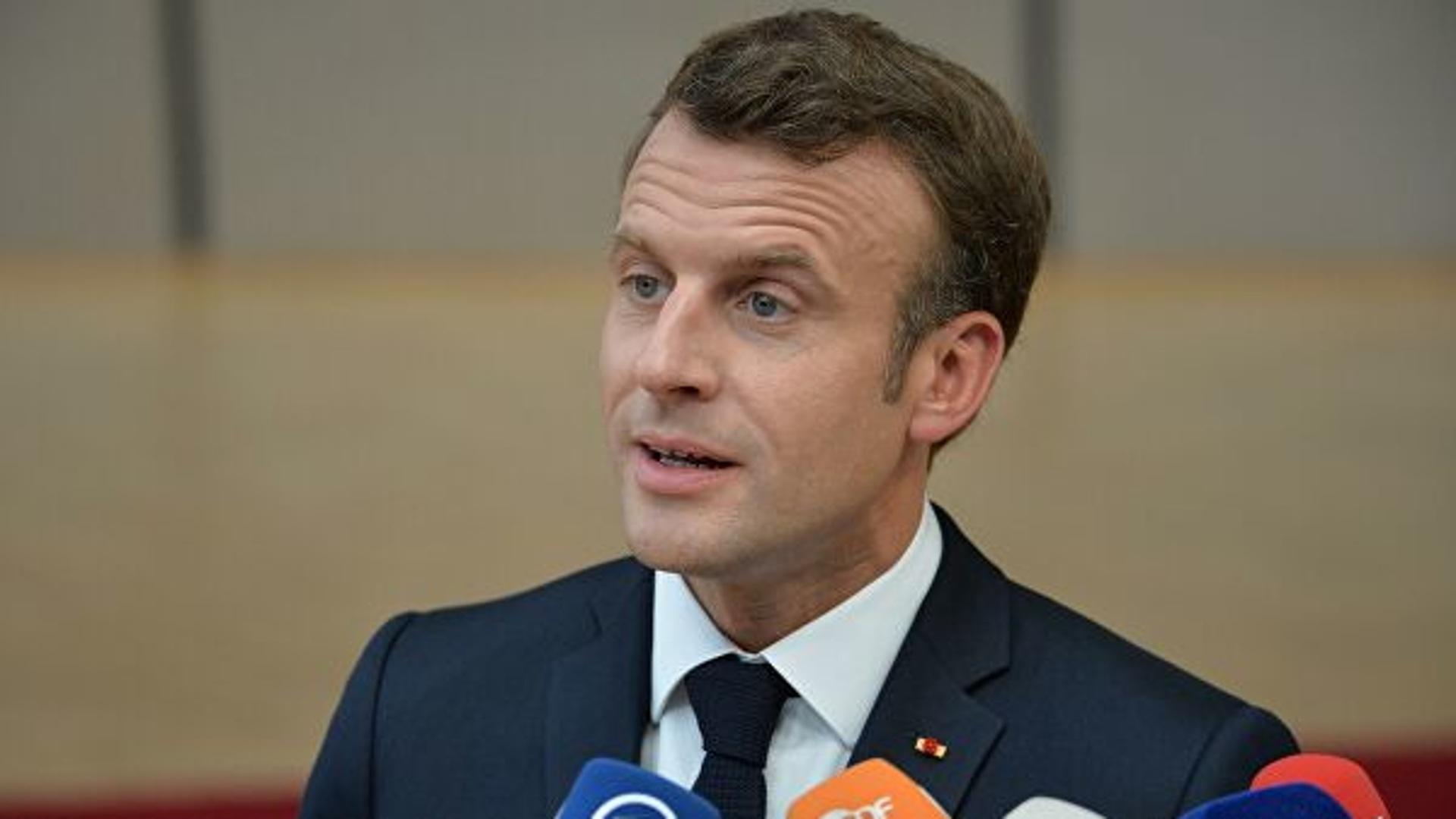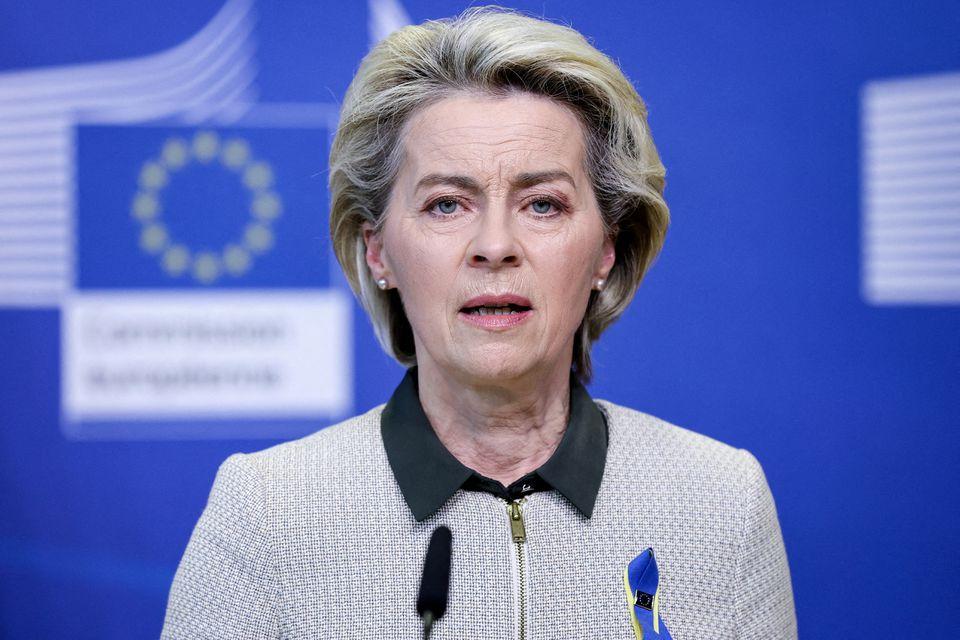Transatlantic cracks: Growing tensions between US and EU Trump vs. Europe
A few days ago, European Commission President Ursula von der Leyen stated that the European Union was prepared for potential challenges in its relations with the United States, which had "set a new agenda." However, she left room for a "constructive dialogue with the US amidst growing uncertainties," as "Europe is firmly staying the course on its global engagements and partnerships." According to several analysts, von der Leyen’s multilayered statement effectively accused Washington of deviating from a similar outlook. Thus, it is precisely U.S. President Donald Trump’s policies, as presented by the EC leader, that have marked the beginning of these very "uncertainties."
Von der Leyen was echoed by French President Emmanuel Macron, who swiftly entered the "debate" arena, calling on Trump to change course. As he put it regarding the steps taken by the White House, instead of waging a trade war with the European Union, Washington would be better off focusing on countering China, the crisis in the Middle East, and the war in Ukraine. In other words, rather than offering concrete proposals, Macron once again attempted to lecture the Americans on foreign policy strategy in a patronising tone. Moreover, he spoke quite harshly, attempting to pressure the Washington administration: "Europe is an ally for you. If you want Europe to be engaged in more investment, security, defence, if you want Europe to develop, which I think is in the interest of the US, you should not hurt European economies by threatening them with tariffs."

The White House, unsurprisingly, does not respond to such insinuations from Paris, instead loudly accusing EU leaders of unwillingness to take real action necessary to bridge the gap between Washington and Brussels. According to some experts, this is precisely why Trump promptly announced the introduction of 25% tariffs on all imports of aluminium and steel into the U.S.—a move that will also hit Europe, particularly Germany’s economic interests.
It is worth recalling that during his first term, Trump had already tested this tariff policy (25% on steel and 10% on aluminium). To justify the decision, Washington invoked Section 232 of the 1962 law, which allows the president to restrict imports if they pose a "threat to national security." Although a WTO panel ruled that the White House’s measures were inconsistent with the organisation’s rules, the U.S. Trade Representative’s office emphasised that the WTO "has no authority to assess member states on security matters."
In any case, those Washington decisions led to a de facto trade war between the EU and the U.S., as the European Union responded with retaliatory tariffs on several American goods that had secured a strong market position in Europe. Notably, Berlin at the time denounced Washington’s "unilateral imposition of punitive tariffs" as "illegal."
On the other hand, von der Leyen stated that "beyond protecting infrastructure, it is time – and even high time – to take our security and defence into our own hands." While she acknowledged that NATO remains the foundation of continental defence, she emphasised that the need for a pan-European defence capability through its own efforts has become evident.
In this context, she underscored the shared responsibility in addressing the issue, noting that "modern warfare requires scale, technology and coordination." Hence, both public and private funding will be essential. Von der Leyen concluded by announcing that the European Commission will present a strategy on the future of European defence in March 2025.

Naturally, this immediately brings to mind Macron’s long-promoted thesis on the importance of achieving European strategic autonomy. But has it moved beyond grand declarations? Against this backdrop, the U.S. administration is graciously offering European politicians the opportunity to turn words into action.
Just a day ago, Donald Trump’s National Security Advisor, Mike Waltz, reinforced the idea that ensuring security guarantees for Ukraine should be Europe’s responsibility. As the saying goes, “You asked for it—here you go.” Waltz made this statement on the eve of a high-profile American delegation’s visit to Europe, which includes not only himself but also U.S. Secretary of State Marco Rubio, Secretary of Defense Pete Hegseth, and other top political figures.
In light of Waltz’s remarks, it is also important to note that he effectively articulated the U.S. position in response to Ukrainian President Volodymyr Zelenskyy’s statement about his willingness to negotiate with Russia on ending the war—on the condition that Ukraine’s Western allies, the U.S. and the EU, take part in the process.
As Zelenskyy specified, "Donald Trump’s plan for a quick settlement in Ukraine must not only stop the war but also ensure that there can no longer be any more Russian aggression." According to him, victory in the war can only be defined as depriving Moscow of the ability to launch military actions against Ukraine again. Therefore, Kyiv is open to any format of negotiations, provided there is full support from the U.S. and Europe for these conditions and security guarantees are ensured.
Waltz, in turn, responded to Zelenskyy’s appeal by effectively challenging the Europeans to prove their geopolitical credibility.
Thus, there are evident—if not outright—geopolitical frictions in U.S.-EU relations. However, Trump’s early presidential track record clearly demonstrates that he always leaves room for a negotiated resolution, even when he initially declares such an outcome impossible with full confidence.
The same applies to the European Union—Trump is undoubtedly calculating that Brussels will make an effort to heed his main grievances. Analysts believe that these issues will be at the forefront of discussions during the American delegation’s visit to Europe, with all sides actively engaging in dialogue.








